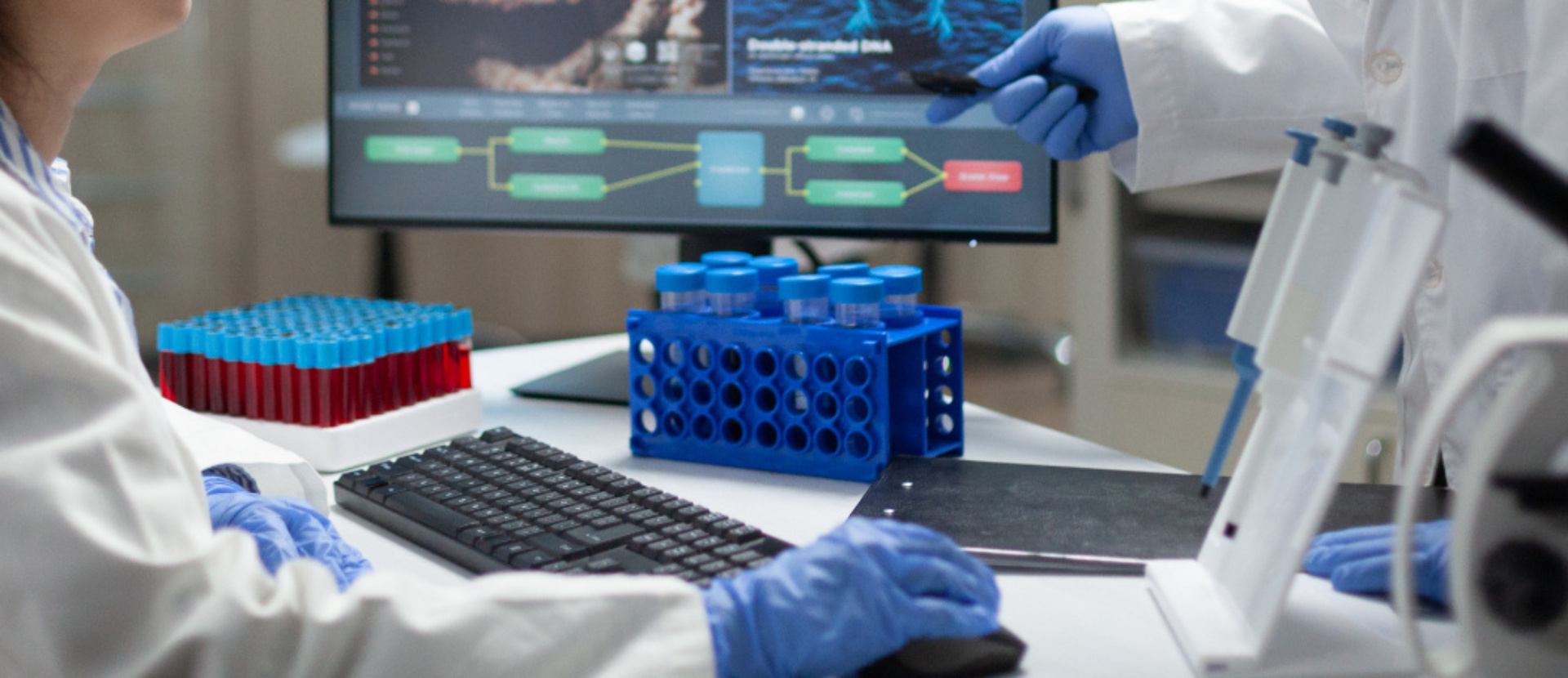THE ULTIMATE GOAL FOR FINANCIAL INSTITUTIONS: USING 100% OF COLLECTED DATA
R&D prevention, treatment, patient follow-up, healthcare systems: AI is involved at every stage of the healthcare pathway, paving the way for earlier intervention and more accurate, more effective medicine. A paradigm shift is underway, driven by players like Qiagen, a company that has revolutionized molecular biology.
In a healthcare market impacted by an aging population, an increase in chronic illnesses, unequal access to healthcare, and soaring medical costs, AI is proving particularly effective in meeting these challenges. With the ability to use cross-referenced data from medical, clinical, genomic, and historical sources, AI models have led to considerable advances: early detection of pathologies through predictive analysis, quick and accurate diagnoses, accelerated therapeutic development, personalized treatments, epidemic surveillance and prevention, and the automation of time-consuming processes in hospitals.
Towards an individualized approach to healthcare
AI’s great breakthrough is its ability to shape personalized medicine, with tailor-made diagnoses and treatments. Qiagen, a leader in molecular diagnostic solutions, is at the forefront of this revolution. The company is behind companion diagnostics in oncology, which are key tools in personalized medicine, enabling the tailoring of treatments to individual genetic profiles. By assessing the likelihood of a patient’s positive response to a treatment, they ensure effective treatments and minimize their side effects, while optimizing costs.

“We use AI in a cross-functional way in R&D, production, and marketing to optimize our operational efficiency, but we also use it at a clinical level.”
From results to clinical recommendations
Since it was founded, Qiagen has used digital technologies to improve the efficiency and accuracy of its products and services. “We use AI in a cross-functional way in R&D, production, and marketing to optimize our operational efficiency, but we also use it at a clinical level,” explains Thierry Bernard, Qiagen’s CEO. “For example, for post-marketing surveillance, AI ensures the ongoing compliance of our products and guarantees their safety and efficacy in the event of bacterial or viral mutations.”
AI is also used to quickly identify the most appropriate treatments, using algorithms that are more effective than traditional tests, and to transform the results from next-generation sequencing of DNA or RNA data into relevant clinical recommendations. Thierry Bernard is a firm believer in AI’s considerable potential when it comes to diagnostics: “AI is an incredible tool for combining the results of in vitro diagnostics and those from imaging, with huge benefits for patients.”
First published in Scope Spring 2025